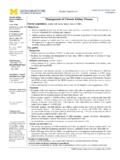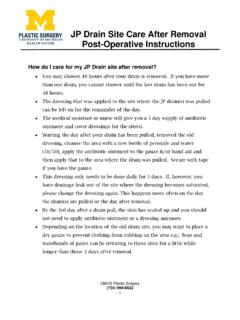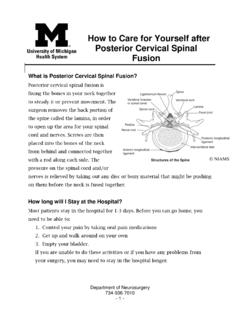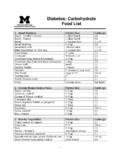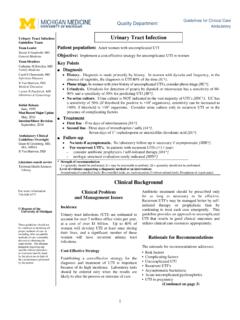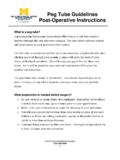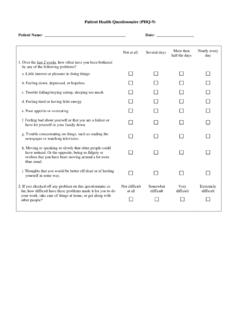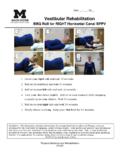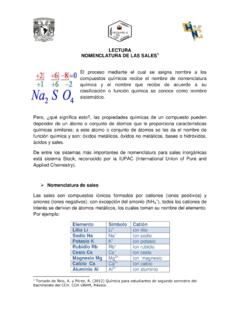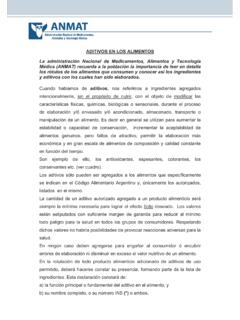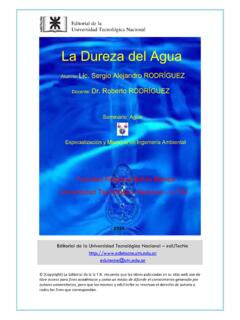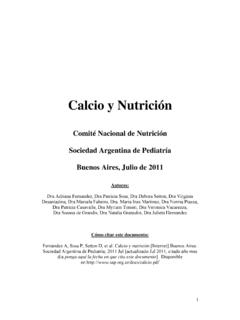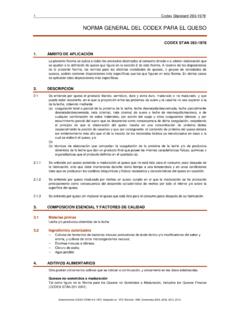Transcription of Magnesium for Constipation - Michigan Medicine
1 Michigan Bowel Control Program - 1 - Magnesium for Constipation What is Magnesium Oxide? Magnesium is a mineral that the body uses to keep the organs functioning, particularly the kidneys, heart, and muscles. Magnesium can be obtained from foods such as green vegetables, nuts, and whole grain products. Though most people maintain adequate Magnesium levels on their own, some disorders can lower Magnesium levels, such as gastrointestinal disorders like Irritable Bowel Syndrome (IBS). Magnesium helps to increase the amount of water in the intestines, which can help with bowel movements. It may be used as a laxative due to these properties, or as a supplement for Magnesium deficiency. What is the dose amount? The maximum dose for Magnesium is 2 grams or 2000 milligrams. You should not take more than 4 tablets or capsules in one day. Magnesium comes in tablets and capsules (500 mg): take orally as directed by your doctor and take with a full 8-ounce glass of liquid.
2 One Tablespoon of Milk of Magnesium is equal to 500 mg. Tablets/Caplets may be taken all at bedtime or separately throughout the day. Side Effects There can be many side effects related to the intake of oral Magnesium . Some of the frequent side effects include diarrhea. You should notify your doctor immediately if you have any of the following severe side effects: black, tarry stools nausea Michigan Bowel Control Program Magnesium for Constipation - 2 - Disclaimer: This document contains information and/or instructional materials developed by Michigan Medicine for the typical patient with your condition. It may include links to online content that was not created by Michigan Medicine and for which Michigan Medicine does not assume responsibility. It does not replace medical advice from your health care provider because your experience may differ from that of the typical patient. Talk to your health care provider if you have any questions about this document, your condition or your treatment plan.
3 Author: Terri O Neill RN, BSN Reviewer: Jenifer Crawford RN, BSN Patient Education by Michigan Medicine is licensed under a Creative Commons Attribution-NonCommercial-ShareAlike International Public License. Last Revised 03/2021 slow reflexes vomit that looks like coffee grounds Where can I purchase Magnesium ? You can find Magnesium over the counter at most stores that sell supplements and at pharmacies. It typically costs $5 for a 100-count bottle. Who shouldn t take Magnesium ? Magnesium is primarily eliminated by the kidney, there is significant risk of hypermagnesemia in patients with renal dysfunction. Do not take Magnesium if you have kidney disease.
